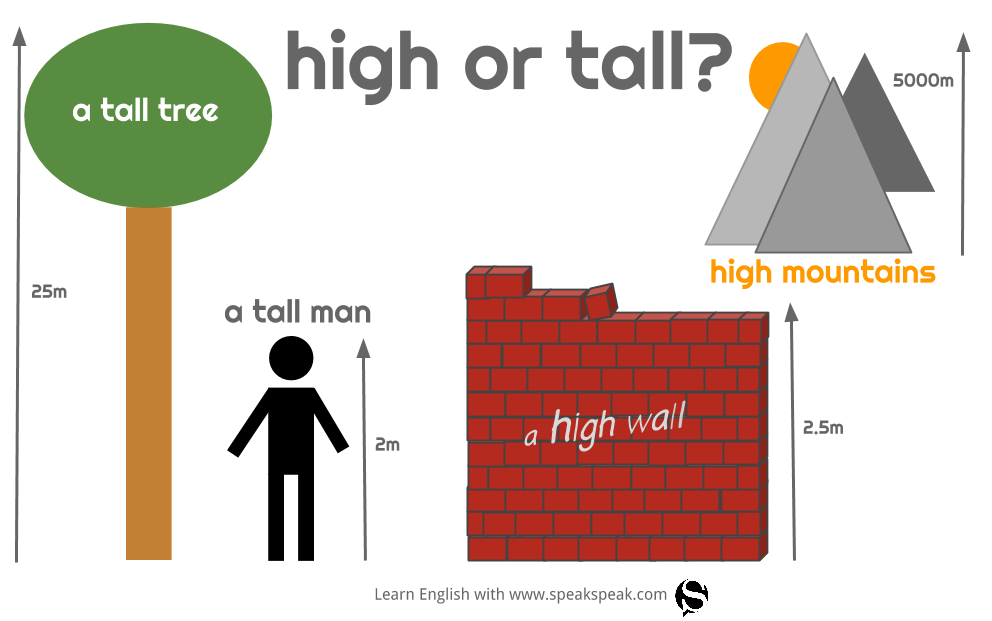de aurelian | mai 26, 2017 | Blog

Hello. In this post I’ll be looking quickly at the difference between high and tall, two commonly confused adjectives in English. High is used of most things, especially to talk about the distance above the ground, i.e. how far something, or its top, is from the ground: a high shelf| a high mountain| The shelf’s too high, I can’t reach it.
We use tall mostly for people, trees, buildings with many floors, and a few other things which are high and narrow (they are higher than they are wide), especially when you’re thinking of the complete distance from top to bottom: a tall building| a tall tree/column/vase/fridge/bottle| a tall man.
In measurements, we use tall for people, but we often use high for things: Michael’s six feet tall| That tree is about eighty feet high/tall.
Walls are always high, not tall.
de aurelian | mai 19, 2017 | Blog
English, like all languages – though maybe to a greater extent -, is full of words with similar meanings and different usage, which can cause problems for the foreign learner. One of those common vocabulary problems I’ve seen over the years (especially at elementary and pre-intermediate level) is the use of alone and lonely. In this post I’ll be looking quickly at how we can use these words to avoid mistakes.
Alone indicates a person (or thing) is separate, i.e., there’s nobody or nothing else around. Lonely (also lonesome in American English) is about how you feel (usually unhappy) when you are alone. Compare:
Sally’s fine when she’s alone for a day or two.
But after that she starts getting really lonely/lonesome.
Alone is not normally used attributively (before a noun). Lone and solitary can be used instead; lone is literary.
There was a lone/solitary tree by the road.
Hope you found it useful.
de aurelian | mai 12, 2017 | Blog
Hello and welcome back after a longer break. As the weekend’s drawing near, some of you will probably choose to have a lie-in on Saturday or/and Sunday morning. Many of us get up really early in the week (Monday to Friday). So, for most people weekends are a chance to switch off and the best way to start is to have a lie-in, i.e., to stay in bed longer than usual in the morning … if you can. Some of us work Saturdays (or Sundays) as well and it just isn’t possible. For others still it’s their body clock. When you’re used to getting up early in the week, your body may prompt you to do it at the weekend even when you’re not going to work.
Here are two examples : Jenny often has a lie-in on Saturdays. | I’m not working tomorrow, so I can have a bit of a lie-in.
Regardless of whether you’re a late sleeper and love having lie-ins or you wake up early at the weekend because you go to work or you’re simply a morning person and you don’t like getting up late, you can now add this new phrase to your vocabulary and learn it.
